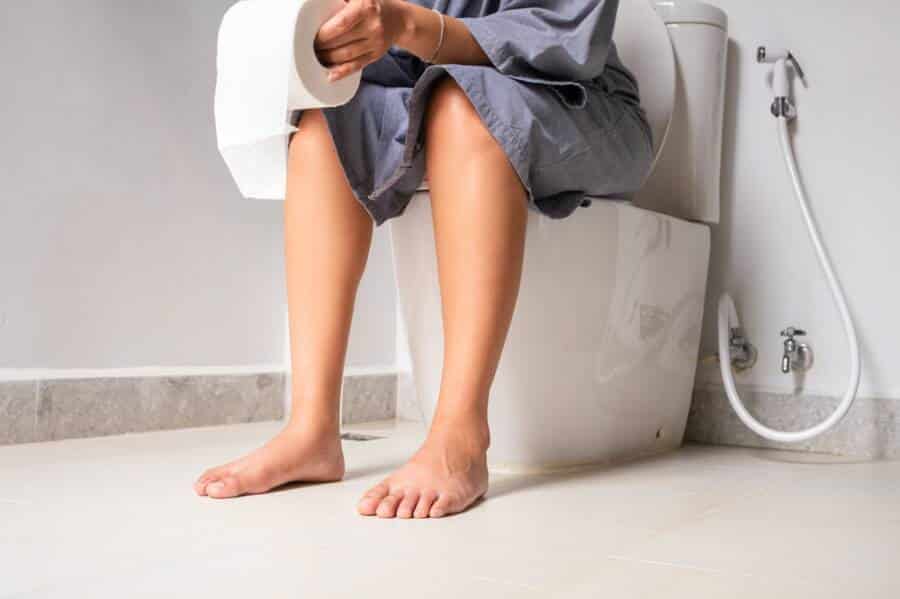Do you suffer from high blood sugar?
You might think you’d know if you’d suffer from high blood sugar, but this health condition can be tricky. Some symptoms could just fly under the radar and, in severe cases, even ruin your days. Several people suffer from this health issue without having any idea about it, and in today’s article, we’ll discover together if you’re one of them as well.
According to the Centers for Disease Control and Prevention (CDC), over 34 million Americans live with diabetes, which is one of the most popular health conditions in the world. This is a result of abnormally high blood sugar levels caused by either insulin resistance in the case of type 2 diabetes or insufficient insulin production like in type 1 diabetes.
What exactly is high blood sugar?
Also known as hyperglycemia, this happens when your bloodstream is filled with too much glucose. According to doctors, this typically concerns diabetes patients more than healthy individuals. Even though your body is smart enough to keep glucose levels under control, it can’t do so when you suffer from diabetes.
Your doctor will measure blood sugar in milligrams per deciliter (mg/dL), and as experts say, a fasting blood glucose level of more than 125 mg/dL is regarded as hyperglycemic. Moreover, if your levels are higher than 180 mg/dL one to two hours after eating, you might be suffering from this health issue, so watch out. If you suspect that you might have high blood sugar but don’t know for sure, here are all the signs you should be looking for:

1. Frequent urination
One of the first things people with hyperglycemia will notice is frequent urination. When your body is filled with sugar, your kidneys start trying everything they can to get rid of it. As they eliminate it, they will also pull out water with it. So, if this is the case, you’ll start visiting the restroom more and more each day.
2. Increased thirst
Since you go to the bathroom more, your body will need more water to replenish all the liquids it loses. So, don’t be surprised if you feel like chucking glasses of water one after the other, because it’s only a natural effect. If you experience these two hidden signs, you should schedule an appointment with your doctor.
3. Fatigue
There’s a difference between being tired after a long and busy day and being fatigued due to a health issue. According to doctors, feeling tired is one of the earliest signs of hyperglycemia.
However, even mild blood sugar swings can happen to people without diabetes or prediabetes after consuming a lot of simple carbohydrates, such as sugar. Here’s how it works: when glucose can’t properly enter your cells due to insufficient insulin, your body’s cells don’t have the energy they need. As a result, you feel tired, drained, and without any motivation to do anything.
You should immediately ask for professional help because, over time, prolonged high blood sugar can damage blood vessels and nerves, which will therefore make your fatigue worse. One of the easiest ways to keep this under control is to eat healthily, move your body, and take the recommended medication if needed.
Is this symptom so specific?
It’s best not to jump to conclusions, as tiredness can also be a sign of low blood sugar, according to specialists. If you feel sleepy and sluggish after a heavy-carb meal—like pasta, potatoes, or sweets—it could be high blood sugar kicking in. Don’t get us wrong, these foods are fine in moderation, but overeating can cause issues. However, if you constantly feel groggy and it affects your focus, mental clarity, or daily activities, it’s best to consult a medical professional.

4. Headaches
I’m pretty sure you’ve experienced headaches when you didn’t give your body enough water. That’s because dehydration can immediately trigger headaches. Even though this isn’t necessarily a symptom of hyperglycemia, it’s still worth looking at.
When your body has too much sugar, your hormone levels go crazy, and combined with dehydration, those headaches will be terrible. If hyperglycemia persists, it can damage your blood vessels, which means that you’ll experience even more frequent and stronger headaches.
If you experience this symptom along with the others in this article, it’s time to pick up your phone and discuss it with your doctor.
…We have many other things to talk about, so keep reading! Have you ever experienced any of these symptoms? Were you concerned? Share your thoughts with us!
5. Nausea, confusion, and vomiting
According to the U.S. National Library of Medicine, nausea, confusion, and vomiting are symptoms of a rare and severe condition, called diabetic ketoacidosis (DKA). Besides the symptoms previously mentioned, DKA can also cause fruity-smelling breath, stomach pain, dry or flushed skin, difficulty paying attention, and trouble breathing.
As experts say, it usually happens in patients with type 1 diabetes and is sometimes the first sign they’re sick. Moreover, DKA happens when your liver breaks down body fat into a type of fuel called ketones at a rate so high that the fuel becomes poisonous and the blood becomes acidic. This typically takes place when the patient’s liver can’t use the blood sugar for energy without insulin. If you suffer from DKA and don’t treat it, it can be fatal, so take care of your health!
6. Blurred vision
Too much sugar in your blood is never good, and one of the scariest things is that it affects several areas of your body, such as your eyes. Doctors say that excess sugar, along with a bit of water, gets trapped in your lens in the middle of your eye, blurring your vision.
Even though this symptom is only temporary and it’s not damaging your eye, things can get far worse if you don’t take care of this issue soon enough.
…Pay close attention to the next symptoms, because they can give you insights regarding the things happening in your body!
7. Recurrent infections
Consistent high blood pressure can interfere with your body’s immune response, and you can feel the side effects almost immediately. This makes it harder for your body to be healthy and fight off infections, germs, and bacteria, which means that you’re more likely to experience more frequent, lingering, or even more severe issues.
According to doctors, women who suffer from diabetes tend to experience vaginal yeast infections. This is a result of excess sugar from high blood sugar that leaks out through the urine and feeds the bacteria that might cause severe infections. Moreover, experts also discovered that diabetes patients might also have an increased risk of getting a urinary tract infection.

8. Slow-healing wounds
As if there aren’t already enough bodily functions affected by high blood pressure, we have to mention another one: your body’s circulatory system. Yes, you’ve read that right. Patients who suffer from hyperglycemia have a harder time recovering from a wound.
High blood sugar impairs your blood flow and your body’s ability to heal itself, which means that your sores will take more time to deal with compared to other people. This is typically noticeable on your feet, and it’s a sign of decreased circulation.
9. Tingling hands and feet
Over time, high blood sugar can affect your nerve function and even cause nerve damage, medically known as neuropathy. This most popular type of neuropathy is peripheral, which will affect the health of your extremities.
If you suffer from this issue, you’ll probably experience feelings of numbness, tingling, and even burning in your hands, arms, legs, and feet.
…If you want to treat blood sugar levels naturally, here’s a great book for you! It’s full of amazing recipes that you can easily make, so give it a try!
10. Dental issues
Another side effect of high blood pressure is dental issues. Both your blood and your saliva contain glucose. According to doctors, when your body is filled with too much sugar, it is more likely to promote the growth of dangerous bacteria in your mouth, which is combined with food particles to form plaque.
Therefore, this results in gum disease, cavities, gingivitis, tooth decay, and foul breath. If you experience swollen gums, sensitivity, or bleeding, you should check in with your dentist ASAP, because it can trigger additional health issues.
Have you ever experienced any of these high blood pressure symptoms? How did you deal with them? Let us know in the comments below! If you notice any of these, go to your doctor ASAP, because it’s important! With that being said, if you want to check out something else from Indulging Health, here’s a good post for you: 7 Common Foods That Might Devastate Your Blood Pressure













